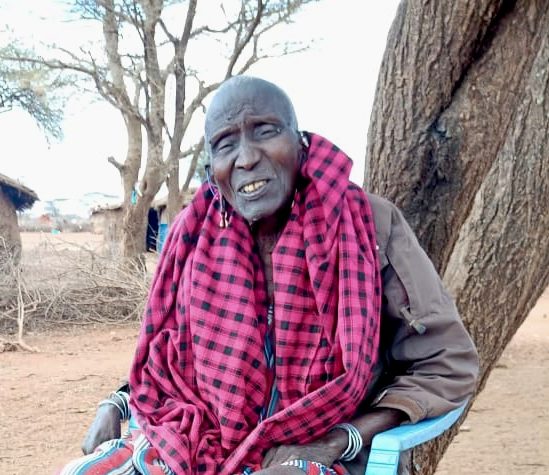Nomadic pastoralists’ land management: our ideas, our future

The traditional land use practices of the Maasai are currently undergoing significant changes. The Maasai have traditionally practiced pastoral nomadism, the way of life where people depend on domesticated livestock and often migrate within an established territory to find pasture for their animals. This way of life was adaptable and primarily compatible with wildlife conservation. However, the rise in human populations, climate change, younger generations abandoning their cultural norms, and excess stocking of livestock are threatening these traditions. Our colleague, Luke Maamai, recently spoke to a senior elder from the community, Kimunyeny Kalenko, from the Eseuri age-set, or Nkaakuyia (grandfather in the Maa language), about the impact of these changes.
Nkaakuyia started by telling Luke, “My grandfather taught me “Meishoroui olaayieni wenkoop,” which means “There are two things you cannot give away, a son and land.” Despite this being repeated many times by elders at community meetings, people continue to sell their most valuable possessions, their land. Nkaakuyia’s family did not originally come from Kenya. His extended family came from Tanzania near Lake Natron, on the border between the two countries, where Nkaakuyia was born. His family moved to Kenya to escape the outbreak of diseases and search for pasture.
In those days, the Maasai respected and observed their customary laws concerning land. Appointed leaders and influential elders were in charge of settling land disputes, while warriors patrolled and protected boundaries and livestock from neighboring tribes. Grazing areas and times were also decided by traditional leaders, as were the seasons of migration. Nobody challenged or violated those decisions. Today, individuals want to determine what to do with their land. This has brought about unwanted settlements, crop farming, and fencing. The result has been the restricted movement of livestock and wildlife unable to access historical hunting and grazing grounds.
“Here is what I suggest to mitigate the effects of land subdivision and changes in land use,” Nkaakuyia continued. “Land should be set aside for livestock keeping, tourism, and conservation. This will help control the selling of land and environmental degradation.”
We choose to remind ourselves of the spirit of love, protecting land and resources for the current and future generations to benefit.
Story and photo credit: Luke Maamai



Leave a Reply